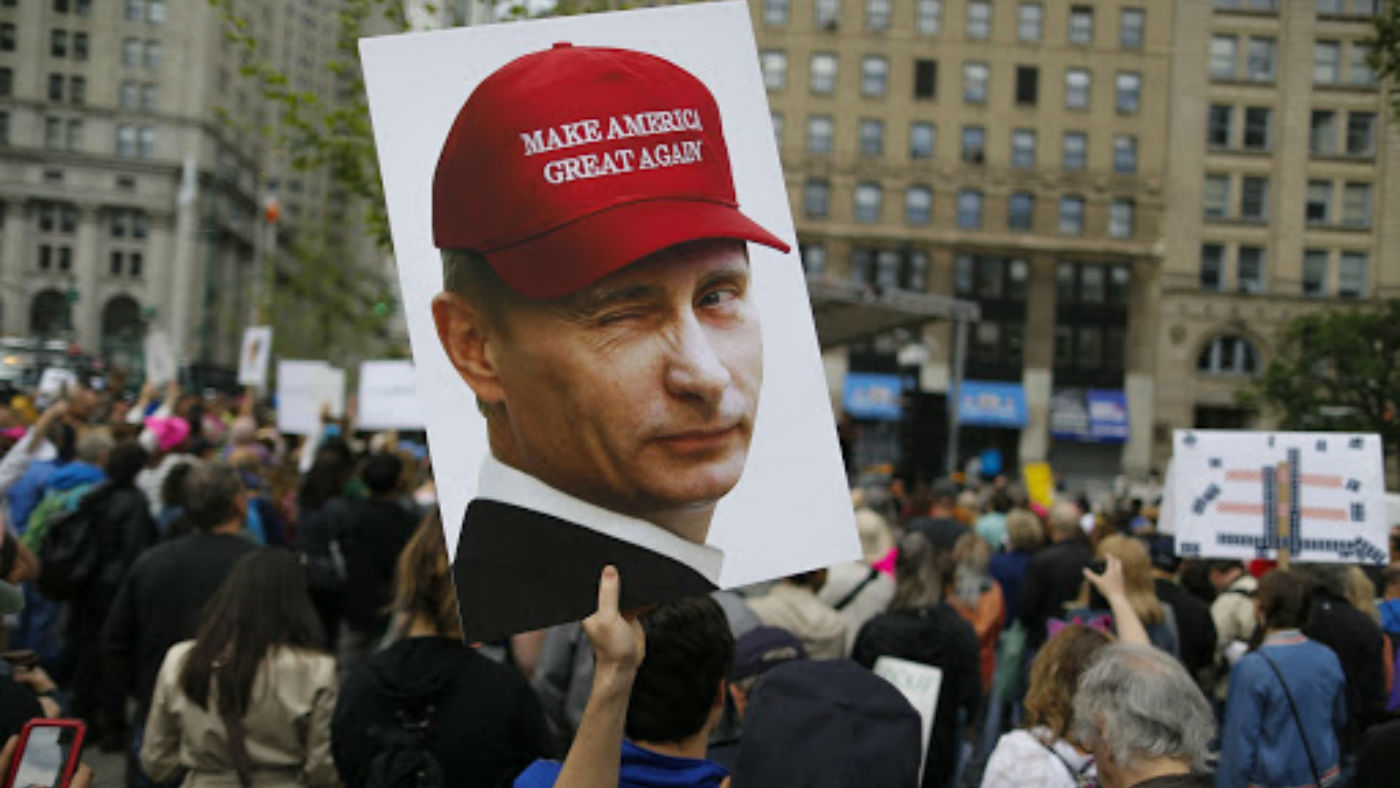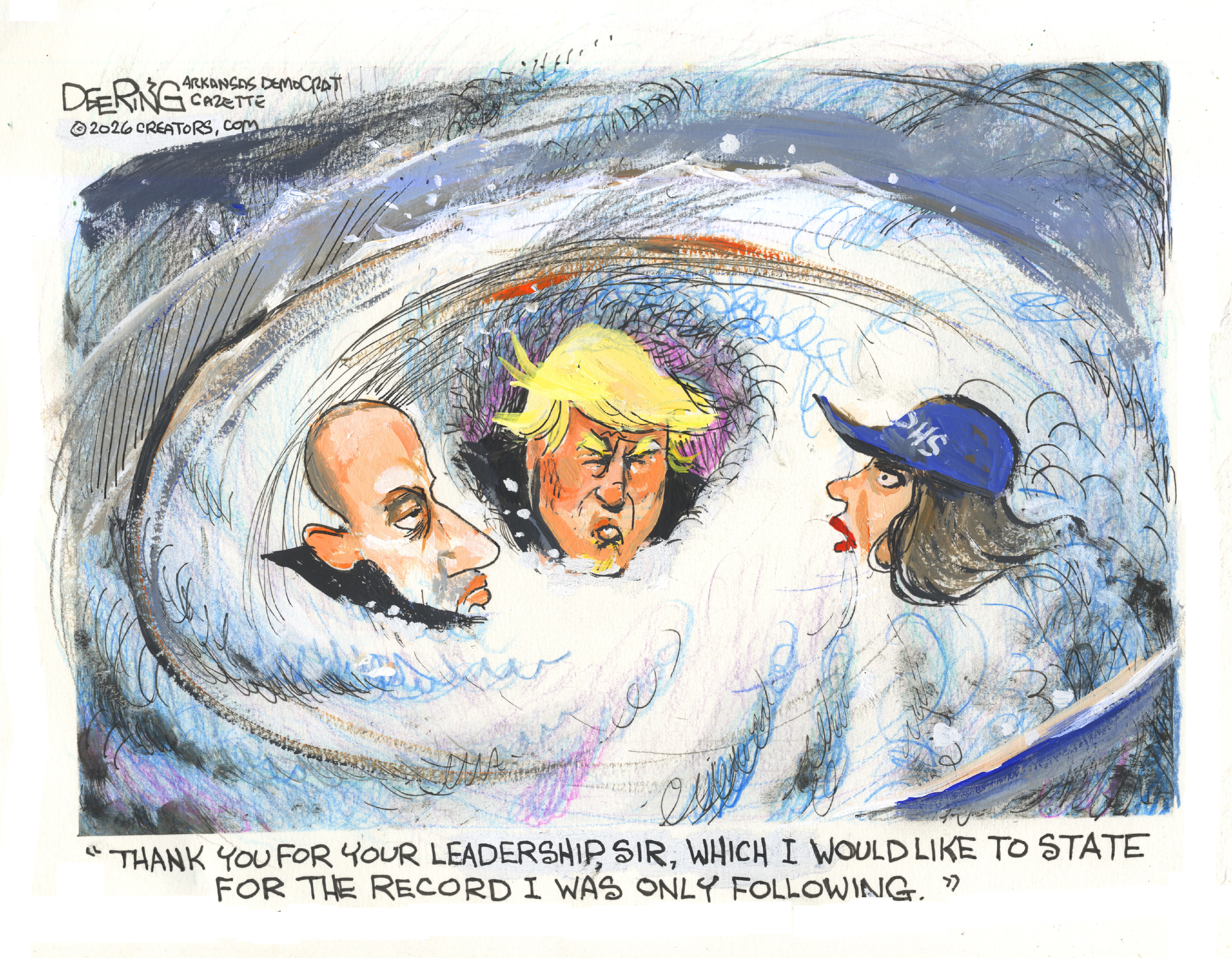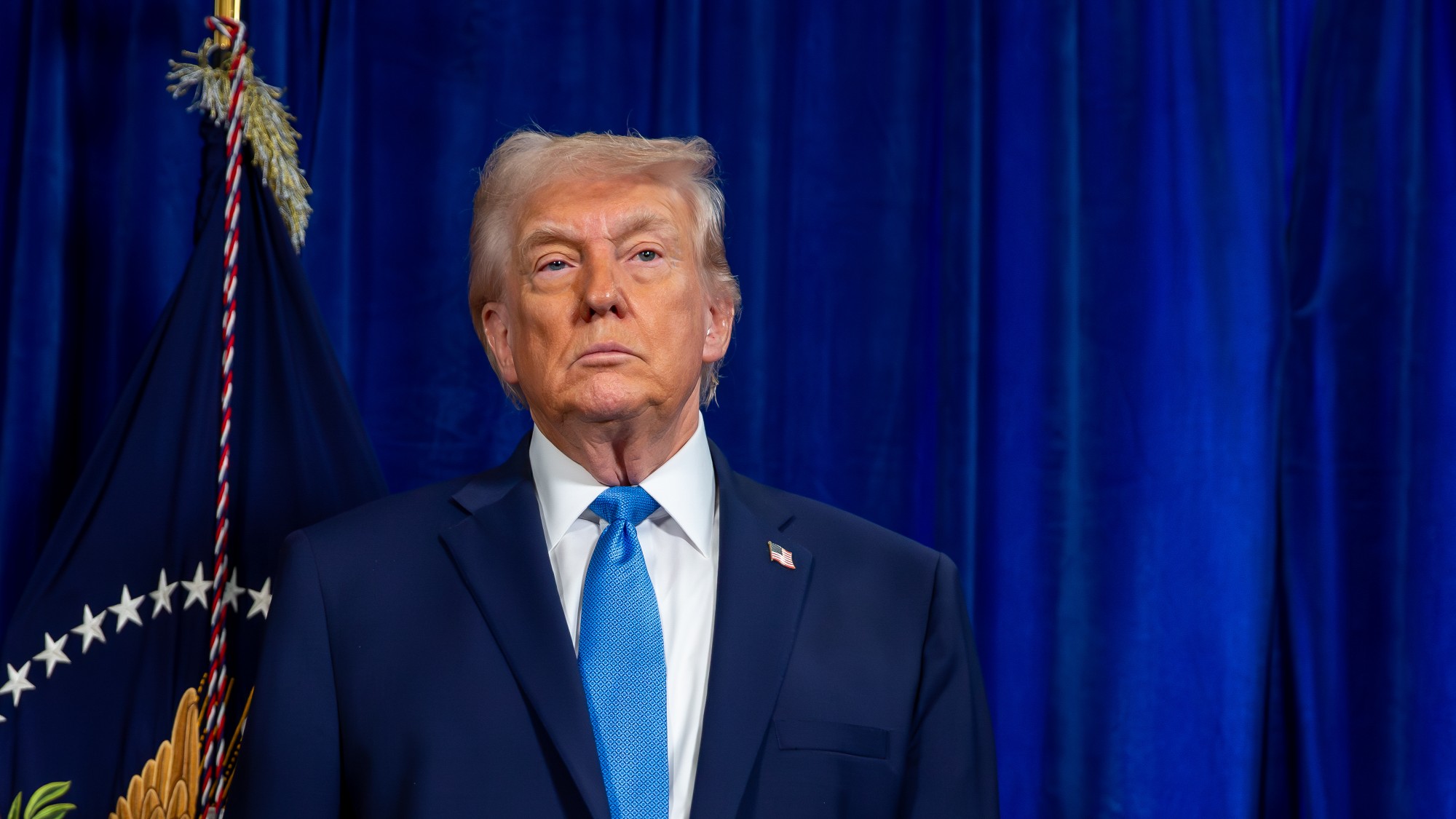Donald Trump and Vladimir Putin: Battle of the egos
The US showman meets Russia's 'master-manipulator' at the G20 in Germany today - and both sides are wary

A free daily email with the biggest news stories of the day – and the best features from TheWeek.com
You are now subscribed
Your newsletter sign-up was successful
Donald Trump and Vladimir Putin meet in Hamburg today for a one-on-one battle of wills and words that will set the tone for the next four years of relations between the two countries.
According to the New York Times, top aides are not entirely sure what the US President will focus on.
Trump often doesn't read the briefing books and relies on in-person information, the officials said, "so aides also have written a list of tweet-length sentences that summarise the main points Trump could bring up with Putin".
The Week
Escape your echo chamber. Get the facts behind the news, plus analysis from multiple perspectives.

Sign up for The Week's Free Newsletters
From our morning news briefing to a weekly Good News Newsletter, get the best of The Week delivered directly to your inbox.
From our morning news briefing to a weekly Good News Newsletter, get the best of The Week delivered directly to your inbox.
HR McMaster, Trump's national security adviser, said: "It's really going to be whatever the President wants to talk about."
While a formal agenda may not have been drawn up, the talks come at a time of sweeping geopolitical change - from a seven-year war in Syria to a month-old showdown between Saudi Arabia and Qatar.
With the US and North Korea on a war footing, and Russia and China acting as de facto mediators, there are many pressing topics that could push their way to the top of today's agenda.
Two White House officials told CNN the main issues will be Syria and the situation in Ukraine. Russia annexed Crimea from Ukraine in 2014, prompting sanctions on Moscow from a number of countries, including the US, Canada and members of the EU.
A free daily email with the biggest news stories of the day – and the best features from TheWeek.com
McMaster also said officials were instructed to draw up options to confront Russia over "destabilising behaviour" such as cyber threats and political subversion.
The cult of personality
Beyond the issues, the personal relationship between the two alpha males has been the source of much speculation, not least by Trump.
"If Putin likes Donald Trump, I consider that an asset, not a liability," the then president-elect said at a press conference in January.
But that was six months ago, before Trump found himself under an investigative cloud involving alleged Republican ties to the Kremlin and questions surrounding Russia's potential meddling in the 2016 US elections.
Trump has morphed from Putin admirer to Putin basher in the last six months. He lashed out at Russia while meeting Polish President Andrzej Dudablamed this week, blaming Moscow for "destabilising" behaviour in eastern Europe following its intervention in Ukraine.
In return, Putin slammed US sanctions and trade protectionism just a day before the leaders' highly anticipated meeting.
Some US media outlets, experts and lawmakers believe Trump's main objective during today's meeting will be to project strength and avoid conceding too much.
"This first meeting is extremely important," Michael McFaul, who served as ambassador to Russia in from 2012 to 2014, wrote in The Washington Post.
"It is up to you to set a tough but pragmatic tone for your interactions with the Russian President for the next four years."
What Vladamir Putin wants
From the Kremlin's perspective, there has also been a feeling of apprehension ahead of today's one-on-one. Analyst Fyodor Lukyanov said the meeting would "give Putin a chance to take the measure of his US counterpart", reports The Guardian. "He can get a personal impression and try to understand whether something will change in the future."
Trump has "perplexed" the Kremlin because it's not clear what his priorities are, nor whether he can work with Congress to achieve them, added Lukyanov.
It is thought the Russian leader will push for the US to relax some of the sanctions, something Trump is known to have supported in the past, says Philip Stephens in the Financial Times.
"Left to his own devices, Trump would lift the US sanctions imposed after the Russian invasion of Ukraine in return for Putin's collaboration in Syria and Kremlin acquiescence in US efforts to contain Iran," he writes.
With Congress and most of his administration set against concessions to Russia, Trump "has been hemmed in so far in his overtures to Moscow" says The Guardian.
A bill passed in the Senate last month, with a 98-2 vote, that would strengthen sanctions on Russia and require congressional approval for any administration attempt to roll them back.
Despite this, Trump has reportedly told White House aides to come up with possible concessions to offer as bargaining chips to Putin in the meeting.
Trump, the wild card
But there is also potential for President Trump to remake policy on the spot in the meeting room, a concept that worries US officials.
“The big wild card in all this is the person holding the position of President of the United States,” said Tom Malinowski, one of the state officials who lobbied for the codification of the sanctions on Russia. “We don’t know what he will say when he meets the master-manipulator from the Kremlin.”
Michael McFaul, a former US ambassador to Russia, says neither side "want to come out of there saying, ‘We’re friends, and the enemy is the deep state and the media’".
McFaul foresees little major change in the relations between Washington and Moscow at the end of the meeting.
"Politics does constrain, I think, the parameters of the possible for any kind of major breakthrough," he writes.
Fiona Hill, the National Security Council’s senior director for Europe and Russia, agrees, saying that while Trump has repeatedly hailed the "strong" and "brilliant" Russian leader, she expected no change in longstanding US-Russia tensions.
"I think it will come down to what it’s always been," she told The Atlantic, "where the Russians will get all giddy with expectations, and then they’ll be dashed, like, five minutes into the relationship, because the US and Russia just have a very hard time… being on the same page."
The best result for the US may be for the meeting to end with the status quo.
“There are concerns that Trump is not an experienced (foreign policy) negotiator, and Vladimir Putin very much is,” said Emma Ashford, a Research Fellow at the Cato Institute.
“We could end up seeing something unexpected come out of this, and that would be the worst-case scenario.”
-
 Political cartoons for February 8
Political cartoons for February 8Cartoons Sunday’s political cartoons include going down the drain, American history, and more
-
 Touring the vineyards of southern Bolivia
Touring the vineyards of southern BoliviaThe Week Recommends Strongly reminiscent of Andalusia, these vineyards cut deep into the country’s southwest
-
 American empire: a history of US imperial expansion
American empire: a history of US imperial expansionDonald Trump’s 21st century take on the Monroe Doctrine harks back to an earlier era of US interference in Latin America
-
 What happens now that the US-Russia nuclear treaty is expiring?
What happens now that the US-Russia nuclear treaty is expiring?TODAY’S BIG QUESTION Weapons experts worry that the end of the New START treaty marks the beginning of a 21st-century atomic arms race
-
 Epstein files topple law CEO, roil UK government
Epstein files topple law CEO, roil UK governmentSpeed Read Peter Mandelson, Britain’s former ambassador to the US, is caught up in the scandal
-
 Iran and US prepare to meet after skirmishes
Iran and US prepare to meet after skirmishesSpeed Read The incident comes amid heightened tensions in the Middle East
-
 Which way will Trump go on Iran?
Which way will Trump go on Iran?Today’s Big Question Diplomatic talks set to be held in Turkey on Friday, but failure to reach an agreement could have ‘terrible’ global ramifications
-
 Israel retrieves final hostage’s body from Gaza
Israel retrieves final hostage’s body from GazaSpeed Read The 24-year-old police officer was killed during the initial Hamas attack
-
 China’s Xi targets top general in growing purge
China’s Xi targets top general in growing purgeSpeed Read Zhang Youxia is being investigated over ‘grave violations’ of the law
-
 Ukraine, US and Russia: do rare trilateral talks mean peace is possible?
Ukraine, US and Russia: do rare trilateral talks mean peace is possible?Rush to meet signals potential agreement but scepticism of Russian motives remain
-
 Panama and Canada are negotiating over a crucial copper mine
Panama and Canada are negotiating over a crucial copper mineIn the Spotlight Panama is set to make a final decision on the mine this summer